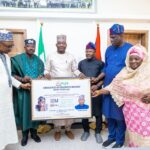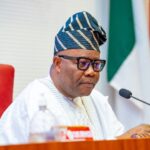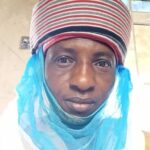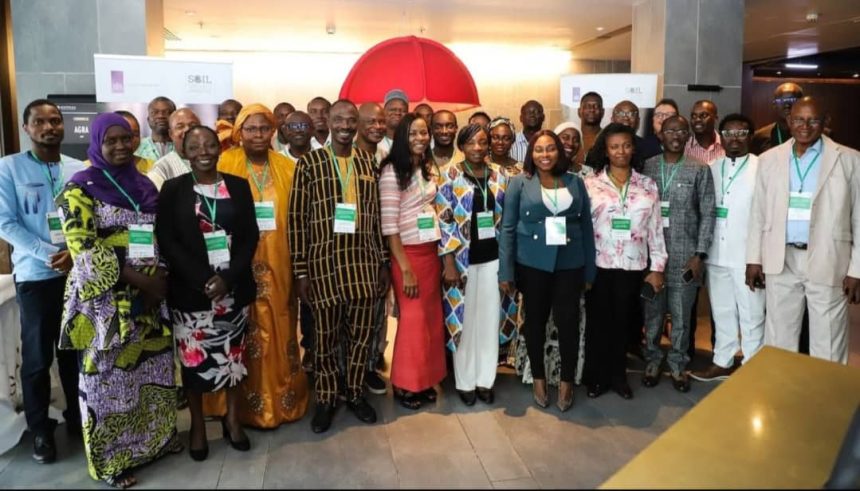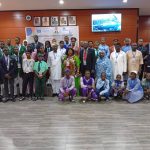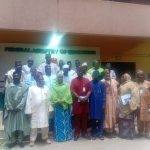Government representatives, farmer leaders, scientists, private sector stakeholders and development partners from across West Africa convened in Abidjan on June 11–12, 2025, for the Soil Values Convening Strategy Validation Meeting—a two-day gathering that produced a strong regional commitment to place soil health at the heart of agricultural transformation.
Co-led by AGRA and the International Fertilizer Development Center (IFDC) as part of the Soil Values Program, and supported by the Kingdom of the Netherlands, the meeting brought together over 40 participants from Burkina Faso, Côte d’Ivoire, Ghana, Mali, Niger, and Nigeria, as well as regional bodies like ECOWAS and CILSS and regional programs like FSRP of the World Bank
Held under the theme “Catalyzing Stakeholder Collaboration for Sustainable Soil Health in the Sahel,” the meeting marked a major milestone for the Soil Values Program, a ten-year initiative designed to restore degraded land, improve soil fertility, and support climate-resilient agriculture.
The strategy, validated in Abidjan, provides a roadmap for multi-level stakeholder dialogue, policy engagement, and on-the-ground action to reverse soil degradation, boost crop yields, and improve farmers’ livelihoods.
Dr. Asseta Diallo, Senior Specialist – Soil Health and Integrated Management at AGRA, stated: “”Soil health is at the heart of the resilience of our food systems. It is where it all starts.
This event marks an essential step in bringing together stakeholders, strengthening advocacy and mobilizing the necessary resources. Together, with our partners and governments, we must transform this momentum into concrete action, in line with the Nairobi Declaration’s action program and regional and continental priorities.
Dr. Diallo reiterated AGRA’s commitment, “AGRA is fully committed to this co-construction to make soil health a real lever of transformation for our food systems. We will continue working with our partners and the consultants to ensure that our theory of change delivers tangible impact”
Dr. Oumou Camara, Vice President for Programs at IFDC Global, added: “We must always keep in mind our objectives: reaching 1.5 million smallholder farmers and covering 2 million hectares of farmland. Achieving this will require building strong, collective efforts — no single actor can do it alone. Together, we can deliver on this ambition.”
Eric Smaling, Acting Director of the Soil Values Program, reinforced the importance of self-reflection and positioning within the regional ecosystem.
“So many things are happening in the region. We need to ask ourselves: Who are we? Where are we going? What are we offering? How do we fit — and with which tools?” He said.
In a show of political and continental alignment, he added that Dr. Alain Sy Traoré, Director of Agriculture and Rural Development at ECOWAS, noted that “Restoring and protecting our soils is a strategic opportunity to strengthen food security, resilience, and sustainable development in West Africa. ECOWAS is committed to ensuring that the momentum generated here translates into practical action aligned with the regional roadmap and the Africa Fertilizer and Soil Health Action Plan. Alone we may go fast, but together we will go far.”
Yemisrach Getachew Aseffa, Senior Partnership Officer, Africa Union
Commission – Coordinator, African Fertilizer & Soil Health Action Plan Implementation, underscored the importance of building inclusive and transparent partnerships: “The African Fertilizer and Soil Health Action Plan is more than a roadmap — it is a call to action. Through sustainable soil management, smarter fertilizer use, and strengthened local systems, it aims to drive resilience, productivity, and food security across Africa.
At the heart of its success lies one principle: building inclusive, transparent, and accountable partnerships. The validation of the Convening Strategy is a key step in turning this vision into concrete and collaborative impact. “
The meeting achieved several important outcomes that will guide the next phase of the Soil Values program and More inputs to improve and validate the convening strategy for coordinated stakeholder engagement across six countries.
Commitment to policy advocacy, incentives, and integration of soil health into national planning and Strengthened collaboration across stakeholders including ministries, farmer organizations, private sector, development partners and research.
It will also have a shared roadmap for implementation with timelines, responsibilities, and indicators.
The Soil Values program is implemented by a consortium of partners including AGRA, IFDC, Wageningen University and Research (WUR), SNV, ICRAF, IITA, ISRIC, and IWMI, with funding from the Netherlands DirectorateGeneral for International Cooperation (DGIS).


